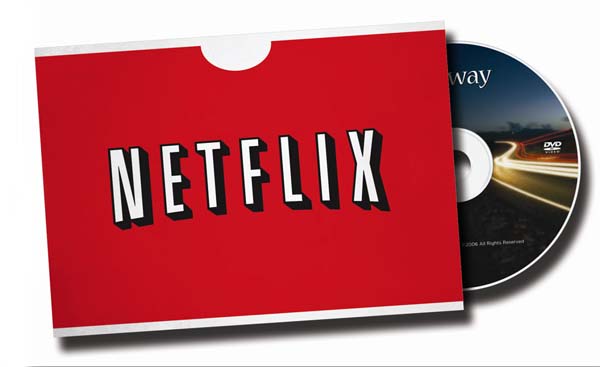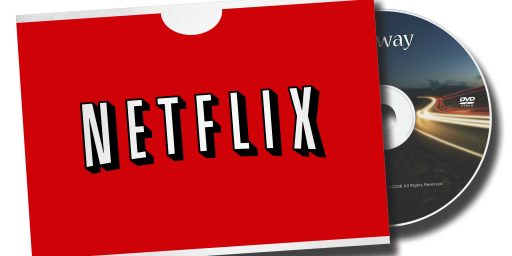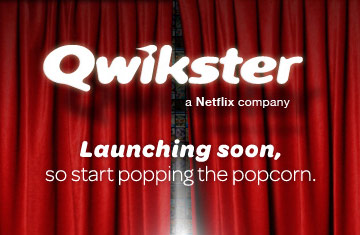Netflix Removes 1794 Movies From Library
The soft underbelly of the post-ownership society.
Netflix has removed nearly 2000 movies from its archives as it battles with studios for licensing.
Greg Scoblete of RealClearTechnology gives some background:
Netflix will cut 1,794 movie titles from its library today. The full list is available here.
The titles belong to Warner Brothers, MGM and Universal, which are pulling them from Netflix and instead housing them in their own subscription-based “Instant Warner Archive” which you can access for $10 a month. (Oh, and according to the Instant Warner Archive’s FAQ, content can be pulled from that library as well.)
While few people are likely to miss the 1,700 culled titles (which include such classics as Deep Impact but also a couple of classic James Bond flicks), Netflix is also ending its licensing deal with Viacom, which includes content from Nickelodeon, BET and MTV. Instead, Netflix said it would try to license shows individually from Viacom to get a better deal.
As content licensing fees increase, and content owners like Warner Brothers try to cut out the streaming middle man and go direct to consumers, Netflix has responded with its own original programming as well as more exclusive licensing deals to stand out from an increasingly crowded field. Still, the loss of these titles is another reminder that streaming subscription services are a fickle beast and living in a “post-ownership” society has its drawbacks.
Slate‘s Sam Adams calls this “The Great Netflix Purge” and “Streamageddon.” While over-dramatic, he’s got a point.
It’s a frustrating experience, not only because of the bait-and-switch aspect of it all but because it adds layers of complication to the home viewing experience. For all the bitching about “bundling” by cable and satellite television providers—which doubtless increases the costs of some, particularly those who never watch live sports—there’s a huge convenience factor in having one subscription and one interface feed all of the content that streams through your television set. We’re slowly losing that.
Currently, I subscribe to DirecTV, which provides all my regular television, including live sports and the all-important NFL Sunday Ticket package, and my whole-home DVR. Additionally, I stream Netflix through my Blu-Ray DVD player. (It can also stream from my Amazon account, YouTube, and other services but I don’t actually use any of that but Netflix.) I have no interest in acquiring a separate subscription so that I can watch Warner’s and Viacom’s content.
We’re seeing the same thing in the music industry, as most of us switch from buying CDs to streaming audio. No music service has rights to all the major catalogs, much less the minor ones. Which means you either have to subscribe to multiple services—which, in addition to being expensive is aggravating, in that you have to learn multiple interfaces and can’t integrate the music between them—or do without major artists.
We could, I suppose, all go back to buying CDs and DVDs. But that strikes me as a huge step backwards. And all of this is why, aside from people being cheap, various illegal pirating services are so popular.






The solution is some sort of open video streaming system that allows multiple content providers to make video available through the same interface. Can you imagine the web if each website required you to install a different browser to view it? It never would have caught on.
@Stormy Dragon
I’ve heard proposals for that type of “compulsory license” system, sort of like what we have for music publishing (not recording, publishing). Some telecoms in the Netherlands have experimented with it, where you basically get unlimited movies, music, and what not for a compulsory licensing fee that’s broken down and distributed to the creators and rights-holders.
It’s mostly just foot-dragging here in the US, plus no appetite in Congress for pushing for it.
@James Joyner
It’s a reminder of how vulnerable Netflix really is. I thought for a while that Netflix had made itself indispensable because of the sheer size of its subscriber base and availability on multiple devices, and that would help to protect it from the fact that it’s ultimately just a middle-man aside from a handful of self-produced shows.
@Brett:
Depends. If no body signs up for “Instant Warner Archive” they may end up having to crawl back to Netflix. Over on the gaming side, there’s a number of companies that tried pulling themselves off Steam and then had to come back because too many people were going “I already have a Steam account, I’m not going to bother with another digital platform that doesn’t work as well just because your company wants to be special snowflake”.
I think Amazon has locked up the $.99 per view market(*), and anyone who thinks they can get $.99 per view will head over there. Netflix will continue to stream content just a little below that tier. I don’t see the sense of “many little stores.” Too hard to get onto the Roku front-page.
* – My unscientific survey, based on the fact that when I use IMDB it most often tells me that Amazon is the one who has it.
Heh. http://instant.warnerarchive.com/ is totally broken right now.
Let’s be clear: Netflix removed these titles only from its STREAMING library. It still offers them via DVD (assuming they exist on DVD, of course). Thanks to the first use doctrine, if you own a movie, album, novel etc. via a hard copy format such as a DVD, CD, book etc. then it’s your property and you can do pretty much anything you want with it. But if you only access it via digital means, then it doesn’t belong to you.
This is the problem Netflix has run into: it’s trying to turn itself into a streaming service, but in streaming, it’s far more at the mercy of the content providers than it is in the DVD business.
@Stormy Dragon:
You know, I’d be willing to pay ten bucks a month if Warners opened up a good-sized chunk of the Warner Brothers, MGM and Universal archives to streaming. Say, everything from the beginning to 1960 or 1970. But not for the slim, lame selection they’re presently offering.
One of the things that makes NetFlix worth paying for is their user interface. Others could come up with decent user interfaces but just because you’ve got content doesn’t mean you’ll make it available in a way that’s easy to use or appealing. Hulu has been going for a good long while with pretty fair content and its user interface continues to be awful. If you know what you want, Amazon is fine. Otherwise it’s terrible.
@Rafer Janders:
Well, Netflix raced for dominance in user share, and I’m not sure they have lost.
@john personna:
No, I’n not sure either. They have a great first mover advantage. However, I continue to be a bit puzzled at how they try to move everyone into streaming and out of DVDs, given that they own the market in DVDs, while with streaming anyone and everyone can cut into their market share.
Re Warner’s move, it’s a bit ridiculous to expect consumers to have to keep track of which studio has the copyright to which movie in order to find it online. That’s just more work than most people are going to do.
Imagine if, as an analogy, each publishing house had its own bookstore, and you couldn’t buy a book from Doubleday at a Random House bookstore, and if there was no Simon & Schuster store in your town, then you just couldn’t get anything by Mary Higgins Clark.
@Rafer Janders:
From what I read, it wasn’t a voluntary move on Netflix’s part. Basically the studios would only agree to license digital rights to Netflix’s under terms that makes it prohibitively expensive for them to provide both Digital and DVD streaming, so they basically had to choose one format or the other, and decided to go with the growing format instead of the declining one.
@Rafer Janders: That’s a fair point. I pretty much use their streaming service for old TV shows and, now, their original programming. I still get Blu Ray DVDs for the blockbuster movies.
@Rafer Janders:
For what it’s worth I bought my first Roku(720p) last Christmas, and mostly let it sit. Then the cable company raised my bill once too many, and I bought a second Roku (1080p), and canceled cable.
I currently watch Netflix when I want to watch TV. I find enough, and it is nice to restart any series I missed from the beginning. Oh, and I am totally spoiled now, haven’t seen a commercial in a month.
I did buy a “Leaf” HDTV antenna, and use that on rare occasion. Works OK in my location.
So I dropped my entertainment bill by like $1000 per year …
(My library has BluRay rental for a buck .. I guess that’s a special advantage.)
@James Joyner:
So you like sports … do you mentally acknowledge that the price you are paying for televised sports is around $1000 per year?
Ooooh. I’ll play the standard trick, “$10,000 over ten years!”
@Stormy Dragon:
Well, that cant’ be right. They do, after all, still rent discs — as I know, since I’m disc only on Netflix, no streaming. The universe of movie available on disc that I want to see is anywhere from five to ten time as large as what they offer via streaming, so streaming never made sense to me.
@john personna:
Like I said above, I’m DVD only and not streaming on Netflix since I primarily use it for movies and not for TV shows, and the movie selection via streaming (especially for classics and foreign movies) makes me sad. That said, if my cable bill gets any higher, I’m going to be tempted to cut the cord and to start using Netflix for TV as well…..
@john personna:
If I want to watch sports, I’m far more likely to walk the 20 seconds to the corner bar with six high-def TVs to watch a game than I am to watch it at home alone. Of course, that’s an advantage that most people don’t have, but if I cut the cord, I’d still have full sports access via that bar.
@john personna: $83 a month isn’t bad. It’s almost the entirety of my entertainment budget.
@Rafer Janders:
Basically, DVDs are protected by the first sale doctrine, digital streams aren’t. I can go buy a huge pile of DVDs and rent them out without any permission or royalties to the studios that made them. When Netflix was DVD only, it was much cheaper because it didn’t have to negotiate with the studios at all.
When it came time to license the streaming, most of the studios wouldn’t agree to terms that didn’t also cover the DVD side of the business. Now that they have to pay royalties on all the DVD rentals, DVD customers are far less profitable than they once were.
This post reminds me that I’ve never tried Netflix. Its been in the back of mind to use the one month trial, but I’ve had two excuses: one, I always think that I’ll wait for a less busy-looking month and two, when I’ve gone to Netflix’s website, the examples of films available look like crap. The website actually looks better today, but in the past, the website made it look like half of their streaming library was Barney the Dinosaur.
@PD Shaw:
The cheater page: Netflix New Releases
[I had never watched “Awake” and this tipped me to it.]
@john personna: Thanks. I am amused that fans/supporters of Netflix provide better information about Netflix’s product that Netflix. Probably not the only time.
@ Dave Schuler
It’s surprising that a company that is so strong on user experience has failed so badly in that aspect of its streaming video service.
BTW, those of you who have a bit of tech savvy might want to try installing a Plex server. The Roku-Plex combo is dynamite if rough around the edges and frustrating in the same way that a lot software that isn’t quite ready for primetime is frustrating.
@anjin-san:
That may in part be due to NetFlix’s “first mover advantage”. There’s a kind of soft power in being the first mover. What people expect is what you’ve done. That puts competitors at a disadvantage.
Heh. I’m still stuck in the DVD world, but that’s mainly because the sort of stuff I want to watch is stuff that you don’t find streamed and often extremely difficult to get your hands on even as a DVD.
(What I want is a streaming provider that hooks me into Japanese TV channels–especially all the old Mita Komon TV dramas which are great fun for someone learning Japanese.)
Amazon Prime is pretty neat from what I call tell. I don’t use it for streaming (due to my terrible Internet connection), just for the free shipping on stuff I order (and trust me, I order a lot of stuff through them). Their selection doesn’t seem too bad: Seasons 1-3 of Justified in HD (season 4 is still pay-to-view), Seasons 1-8 (7 and 8 in HD) of 24, bunches of seasons of Star Trek and its spin-offs, etc.
One thing is for certain, until the various providers get their act together and come up with a valid 21st model for selling content that is both affordable and convenient for consumers, the default solution for many will be to acquire their own content through various nefarious means and watch through their own HTPCs or similar devices.
Up here in Canada, we have the CRTC (government media regulatory body) debating whether or not to force providers to add more channels to their existing packages, thereby forcing consumers to pay for content they don’t want. Little wonder more and more are cutting the cord every day.
I hate Hulu-not paying for a system that is difficult to navigate and still has commercials.
I like Netflix and am unlikely to pay $10 a month to different companies-basically if Netflix doesn’t have it I don’t watch it. My guess is I am not the only one with this attitude.
I have Amazon Prime but haven’t used their streaming because my blue ray doesn’t appear to be compatible with their service.
@Just Me: Indeed I find it ridiculous that hulu has advertisements even when you pay for the service. I’m also not going to pay 10 bucks to five or more different movie companies just so I can have access to material.
I would rather go back to pirating stuff instead..